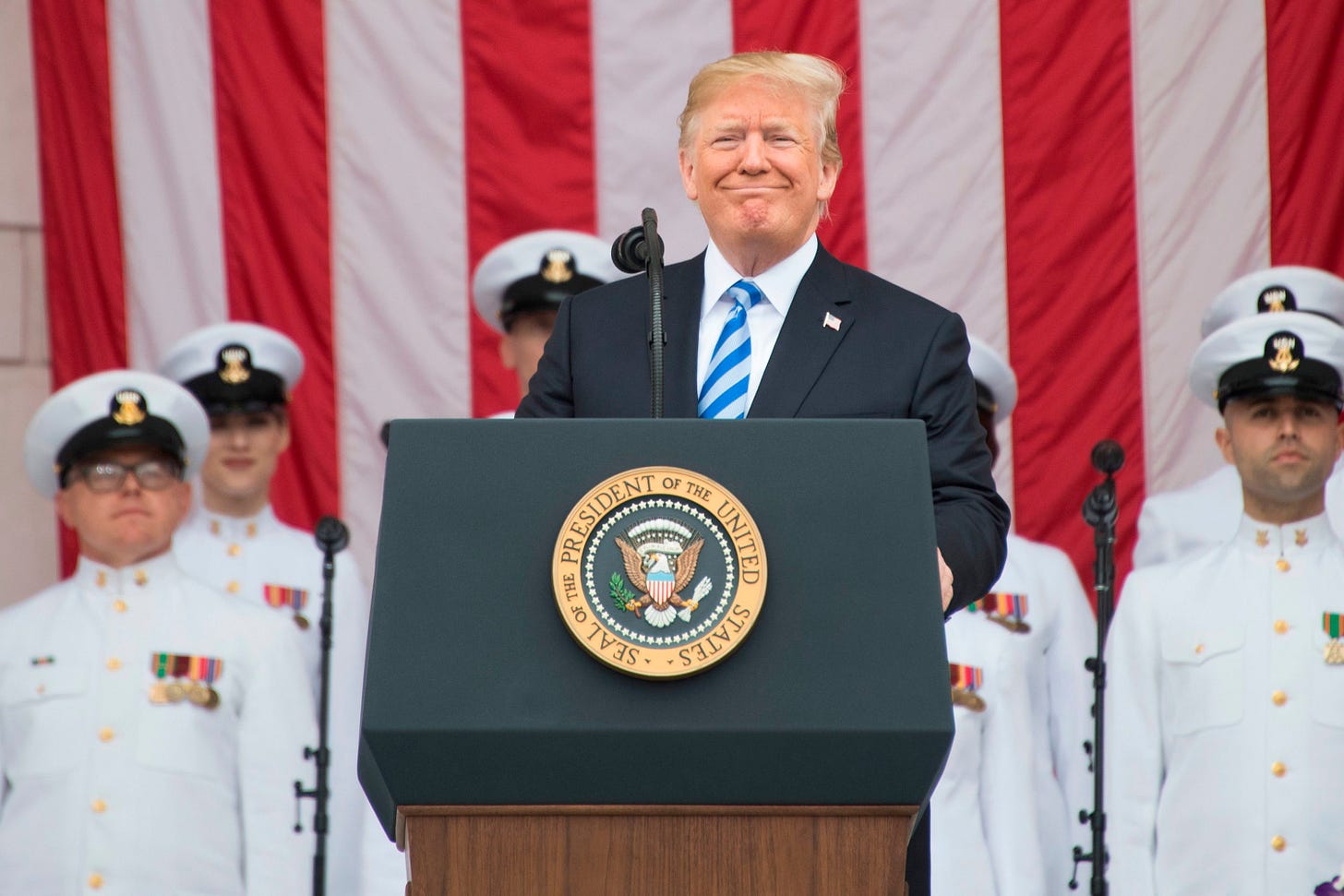Trump Is Politicizing the Military, Too
Last week, President Trump tweeted that he had ordered Secretary Richard Spencer (no, not that Richard Spencer) and Admiral John Richardson, the most senior civilian and military officers directly in charge of the Navy, to rescind the awards given to the prosecutors of Navy SEAL Eddie Gallagher’s case.
There is a lot to be said about Gallagher’s case, but, at the end of the day, he was acquitted of six of the charges and found guilty of a much less serious one. There is also plenty to be said of his case’s prosecutors and whether or not they deserved the awards they received.
But if you jump up to 30,000 feet, these become minor details on the real issue: the commander-in-chief’s politicization of the military.
The U.S. military is an institution divorced from domestic politics, by design. The military, for its part, is careful not to breach this trust. Commissioned officers frequently talk about how they don’t vote and refrain from opining about politics out of fear of politicizing the military. This is a great demonstration of patriotism by our servicemembers but also an indication of how important it is to keep domestic politics out of the military and the military out of domestic politics. (Kori Schake, an expert on civil-military relations, has written about how retired flag officers’ endorsements for political candidates is harmful and a breach of this trust.)
But the trust is two-sided.
***
President Barack Obama was especially unpopular among the enlisted servicemembers. It is also true that the military’s enlisted members tend to be more Republican than Democratic, mostly because they check many Republican boxes: the enlisted members tend to be Southern, Christian, male, and without a college degree. Which makes the temptation for Republican presidents to use the military as political props especially dangerous.
President Trump is exceptionally terrible at this. Two years ago, his campaign website posted an ad featuring his then-National Security Advisor and active-duty Lt. General H.R. McMaster in Army uniform. During the 2016 Republican National Convention, retired Lt. General Mike Flynn (who would go on to become his first National Security Advisor) led “lock her up” chants directed at the Democratic nominee.
At one point in Donald Trump’s administration, his national security advisor, deputy national security advisor, chief of staff, and secretary of defense were all retired or active-duty flag officers. During this period, Trump referred to this group of civil servants as “my generals.”
In a recent trip to Iraq, Trump signed MAGA campaign hats for American servicemembers. This is despite the fact that the Department of Defense regulations clearly state that “active duty personnel may not engage in partisan political activities and all military personnel should avoid the inference that their political activities imply or appear to imply DoD sponsorship, approval, or endorsement of a political candidate, campaign, or cause.” The commander-in-chief not only condoned but encouraged the violation of this regulation.
On the other hand, Trump loves to pick fights with retired flag officers who criticize him, such as retired Admiral William McRaven and retired General Stanley McChrystal.
***
The problem here isn’t what the military does for Trump. It’s what Trump is doing to the military.
The message Trump conveys to his supporters with these displays is that if the military supports him, then they should support the military. But that if the military doesn’t support him, then they shouldn’t support the military.
This is dangerous ground.
Currently, the United States is facing a crisis of a lack of trust in public institutions. A Gallup poll asked Americans about their trust in all kinds of public institutions: the three branches of the government, organized religion, private businesses, medical institutions, etc. as well as the military and the police. The military scored a towering 73 percent, the highest level of trust of any large American institution. The American people trust the military more than any other part of the federal government.
This is a good thing but also a necessary thing for a healthy democracy that plays an important part in global stability.
But by tying the military to himself, Trump risks turning the public against it.
A recent YouGov poll showed that on a scale of 1 to 4, Democrats trusted the military 3.15, compared with Republicans who scored 3.63. That’s only a 12% difference. Not perfect, but not terrible, either.
But making the military a partisan target like everything else—guns, abortion, Megan Rapinoe, the NFL—risks expanding that gap. If support for the military were to become a partisan issue, then it would be deeply bad for the United States. Because a country which does not have a high-degree of faith in its military will not be able to muster the collective will to project force in the world. And a country that cannot project force, cannot shape events.
Trump claims that he loves the military. I suspect that what he means is that he loves the fact that the military loves him. Nevertheless, he is doing a great deal of harm to the institution.


